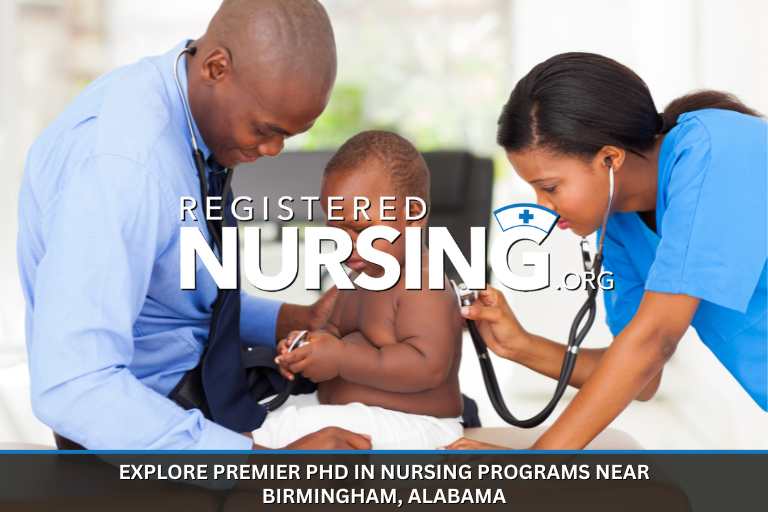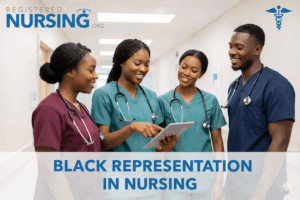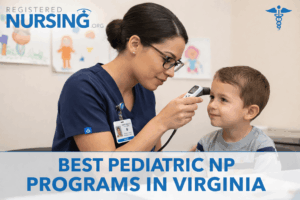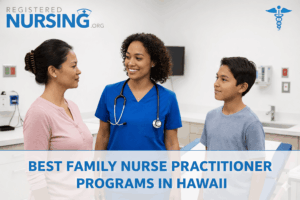Search Premier Ph.D. in Nursing Programs Near Birmingham, Alabama
- 2026 Best PhD in Nursing Programs Near Birmingham, Alabama
- Advancing Nursing Scholarship in Birmingham
- Comprehensive Curriculum with Local Relevance
- Admission Requirements for Birmingham Programs
- Career Outcomes for Ph.D.-Prepared Nurses
- Research Opportunities in Birmingham's Healthcare Landscape
- Learning Formats Designed for Working Professionals
- Funding Pathways for Doctoral Study
- Action Steps for Future Ph.D. Candidates
- The Value of Earning a Ph.D. in Nursing in Birmingham
- Sources
- Latest Articles & Guides

Birmingham, Alabama, stands out as a center for advanced nursing education, offering pathways for nurses to pursue doctoral-level study that influences the future of healthcare. According to the American Association of Colleges of Nursing, the need for doctorally prepared nursing faculty continues to grow, with thousands of open faculty positions nationwide.
A Ph.D. in Nursing not only prepares experienced nurses for leadership in academia and research but also positions them to make policy recommendations that shape healthcare delivery. With its strong network of hospitals, research institutions, and community health programs, Birmingham provides an ideal backdrop for doctoral candidates to connect rigorous scholarship with real world healthcare challenges.
2026 Best PhD in Nursing Programs Near Birmingham, Alabama
University of Alabama at Birmingham
Birmingham, AL - Public 4-Year - uab.edu
Doctorate - Doctor of Philosophy in Nursing
Online & Campus Based - Visit Website
The University of Alabama at Birmingham's PhD in Nursing exemplifies a cutting-edge research doctorate designed to transform healthcare through scholarly excellence. With comprehensive funding for full-time students, the program offers an innovative hybrid learning model enabling scholars to develop advanced research methodologies. Students benefit from mentorship by internationally recognized faculty, engaging in interprofessional research opportunities and developing skills to conduct ethical, original investigations. The curriculum emphasizes scientific knowledge dissemination through publications and presentations, preparing graduates to drive significant policy transformations in nursing science. Key program features include optional Mixed Methods Research Certificate, flexible study options, and a rigorous 87-credit hour academic journey.
- Full funding for full-time students
- Research-intensive doctoral program
- Mentorship by internationally recognized researchers
- Interprofessional research opportunities
- Minimum 3.0 GPA requirement
- 87 total credit hours required
- Hybrid/flexible learning format
- Optional Mixed Methods Research Certificate
- Multiple funding options available
- Full-time and part-time study options
The University of Alabama
Tuscaloosa, AL - Public 4-Year - ua.edu
Doctorate - Joint Nursing Science PhD Program
Online & Campus Based - Visit Website
The University of Alabama's Joint Nursing Science PhD Program uniquely bridges educational pathways for BSN and MSN-prepared professionals seeking advanced research expertise. With a strategic focus on rural and medically underserved populations, this hybrid doctoral program cultivates nurse scientists through comprehensive 60-63 credit hour curriculum. Students engage in three annual campus intensives, developing sophisticated research methodologies and scholarly competencies. The program's rigorous approach emphasizes ethical research conduct, theoretical foundations, and impactful knowledge generation. Requiring a minimum 3.0 graduate GPA and active RN licensure, the program prepares doctoral candidates to transform healthcare through innovative research strategies and nuanced understanding of complex healthcare challenges.
- Joint program between UA and UAH
- 60-63 total credit hours
- BSN and MSN prepared students welcome
- Minimum 3.0 graduate GPA required
- RN licensure mandatory
- Three annual campus intensives
- Research-focused curriculum
- Dissertation required
- Rural healthcare emphasis
Advancing Nursing Scholarship in Birmingham
Birmingham offers an environment where doctoral students can contribute to both local and national healthcare improvements. The city's healthcare infrastructure includes nationally recognized hospitals, specialty care facilities, and nonprofit health initiatives. Many of these organizations are deeply involved in addressing pressing challenges such as rural health access, chronic disease prevention, and mental health care.
Birmingham's academic and professional communities regularly host conferences, continuing education workshops, and research symposiums, making it a gathering place for thought leaders from across the Southeast. This active exchange of ideas allows doctoral students to collaborate on projects with measurable community impact (National Institute of Nursing Research).
Comprehensive Curriculum with Local Relevance
Ph.D. in Nursing programs in Birmingham combine academic depth with applied research opportunities:
- Advanced Research Methods: Extensive training in biostatistics, epidemiology, qualitative research, and mixed methods approaches equips students to design and execute original studies with practical applications (National Library of Medicine).
- Healthcare Policy and Leadership: Courses focus on translating evidence into policies that improve patient outcomes and healthcare systems, with local case studies from Birmingham's healthcare network.
- Scholarly Writing and Publication: Students learn to craft high quality manuscripts, secure research funding through grant proposals, and present at professional conferences.
- Specialized Research Interests: Opportunities to collaborate on projects in areas like population health management, gerontology, palliative care, oncology, and maternal health.
Programs often integrate partnerships with Birmingham's medical centers and public health agencies, enabling doctoral research to directly inform clinical practice and policy.
Admission Requirements for Birmingham Programs
Applicants typically need to demonstrate a blend of advanced academic preparation, professional licensure, and research readiness that will enable them to thrive in a rigorous doctoral environment:
- Graduate-Level Education: Master's degree in nursing (MSN) or related discipline; some programs consider BSN-prepared nurses with exceptional credentials.
- Licensure: Active and unencumbered RN license.
- Professional Experience: Leadership, academic, or advanced clinical experience is preferred.
- Research Alignment: A statement of research interests aligned with faculty expertise.
- Testing and Documentation: GRE scores when required, plus professional CV, academic transcripts, and recommendation letters.
Strong applications demonstrate both academic readiness and a clear research vision (Bureau of Labor Statistics).
Career Outcomes for Ph.D.-Prepared Nurses
Graduates are prepared for high impact roles across healthcare and academia, equipped with the expertise, research acumen, and leadership skills necessary to address complex challenges and drive meaningful change:
- Nursing Faculty and Academic Leaders: Develop and lead curricula while mentoring the next generation of nurses.
- Healthcare Researchers: Design studies that advance evidence-based care, patient safety, and system efficiency.
- Policy Advisors: Influence healthcare decisions at local, state, and national levels through research-driven recommendations.
- Consultants and Analysts: Guide healthcare organizations in implementing quality improvement initiatives.
In Birmingham, these roles are vital as the region works to address healthcare workforce shortages and improve patient outcomes (American Nurses Association).
Research Opportunities in Birmingham's Healthcare Landscape
Birmingham's research environment offers a range of opportunities that blend academic rigor with hands-on application, making it an ideal setting for doctoral candidates to contribute to meaningful advancements in nursing:
- Urban and Rural Health Studies: Addressing disparities in healthcare access and outcomes.
- Chronic Disease Research: Projects targeting prevention and management of heart disease, diabetes, and obesity.
- Maternal and Child Health Studies: Improving prenatal care, birth outcomes, and pediatric health.
- Collaborative Projects: Partnerships with public health departments, medical schools, and community-based organizations.
These opportunities allow doctoral students to engage in projects that combine academic rigor with community benefit (Alabama Department of Public Health).
Learning Formats Designed for Working Professionals
To support active nurses, many Birmingham nursing programs offer flexible delivery models and scheduling options that accommodate professional and personal responsibilities:
- Hybrid Models: Online courses paired with scheduled campus sessions.
- Fully Online Programs: Remote learning for those outside the metro area.
- Research Residencies: On-site intensives for networking and collaboration.
These options allow nurses to advance their education while maintaining professional commitments.
Funding Pathways for Doctoral Study
Students can explore a variety of financial avenues to offset tuition and research expenses, tailoring a funding strategy that aligns with their academic goals and personal circumstances:
- Assistantships and Fellowships: Financial support tied to teaching or research duties.
- Employer Reimbursement: Offered by healthcare employers to support professional development.
- Scholarships and Grants: Funding from nursing associations, state agencies, and research organizations.
- Stipends for Funded Research: Available to students working on externally supported projects.
Combining multiple funding sources can make doctoral study more accessible.
Action Steps for Future Ph.D. Candidates
The transition from interest to enrollment in a Ph.D. program benefits from clear, intentional planning. In Birmingham, candidates can take advantage of local networking opportunities, healthcare partnerships, and academic events to position themselves for success from the outset.
- Define a Research Agenda: Focus on a topic that aligns with local healthcare needs and faculty expertise.
- Evaluate Program Fit: Review curriculum, faculty research interests, and program timelines.
- Prepare a Competitive Application: Highlight academic achievements, professional contributions, and research vision.
- Plan Financially: Research funding options early in the process.
- Engage in the Professional Community: Attend local conferences and join nursing organizations.
The Value of Earning a Ph.D. in Nursing in Birmingham
A Ph.D. in Nursing from an Alabama nursing school offers more than advanced academic training; it offers a platform for meaningful impact. The city's dynamic healthcare sector, combined with its academic resources, creates an environment where research can translate into measurable improvements in patient care. Graduates leave prepared to lead, educate, and innovate in a variety of settings, ensuring that the profession continues to evolve in response to changing healthcare needs.
This academic journey not only elevates individual career trajectories but also strengthens the nursing profession's ability to respond to evolving healthcare demands. By investing in advanced scholarship in a city with such rich clinical and research resources, graduates position themselves at the forefront of innovation, ready to influence policy, inspire future practitioners, and address critical healthcare challenges across diverse populations.
Sources
- American Association of Colleges of Nursing
- National Institute of Nursing Research
- National Library of Medicine
- Bureau of Labor Statistics
- American Nurses Association
- Alabama Department of Public Health
Latest Articles & Guides
One of the keys to success as a registered nurse is embracing lifelong learning. Our articles and guides address hot topics and current events in nursing, from education to career mobility and beyond. No matter where you are on your nursing journey, there’s an article to help you build your knowledge base.
Browse our latest articles, curated specifically for modern nurses.



